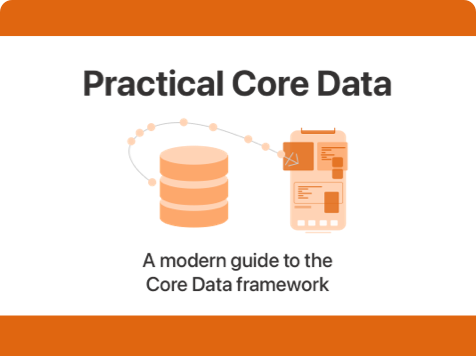3 tips to work through a technical coding interview
Published on: September 7, 2020If you're a programmer looking for a job it's very likely that you'll have to do a coding interview at some point. Every company conducts these interviews differently. Some may have you work through several heavy computer science problems, others may present you with a task that's related to the job you're interviewing for and others might do both.
No matter what the exact form is, you'll want to nail these interviews as they are a big part of whether you'll get an offer or not.
In my career, I haven't had to go through extensive coding interviews myself. That's in part because I've interviewed with smaller, local companies most of the time and in part because until recently coding challenges just weren't that common where I'm from.
A while ago I was talking to a coworker about coding interviews and not only has he gone through more coding interviews than I have, he's also been on the interviewer's side far more often than I have been.
Based on that conversation, and the brief mock coding challenge I completed to see what our interview process was like (the company I was hired at got bought by my current employer so I never went through their interview process), I would like to share three things with you that I have learned from talking to many people about their interviewing experiences over the past few years.
This list obviously isn't a complete list made up of everything you could possibly do to nail a coding interview, and it might not even apply to every interview out there. After all, every country, company, and interview is different and there's no silver bullet to doing well on every coding interview.
1. Study
The tip I'd like to open this top three with is very important, but also my least favorite tip. If you want to do well during a coding interview you'll have to sit down and study. Many coding interviews will contain problems that are common computer science, or general programming problems and you'll have to understand how to best solve these problems.
However, just learning the solution to each problem might not be enough. You'll want to learn why a certain solution is a good fit for a certain problem.
If you can produce a perfect solution to an interviewer's question but you can't explain how that solution works, why it's a good solution, or how it performs, the interviewer will see that you studied, which might score you some point, but they can't determine whether or not you understand what you're doing.
A resource that I've often seen recommended and sometimes peek into myself is Cracking the Coding Interview. This book contains a ton of interview questions, theory, and answers based on the interview processes at companies like Facebook, Google, Microsoft, and more. This book is a very popular and common resource which means that it's not unlikely for you to encounter questions from this book in an interview.
If you're interviewing for an iOS job, I recommend you take a look at Paul Hudson's iOS interview questions page which contains a ton of questions that are used in iOS interviews regularly.
2. Think out loud
You might not know the answer to every question, and that's fine most of the time. Especially if the interviewer asks you to write the implementation for a specific algorithm on a whiteboard (or a Swift Playground) on the spot.
These kinds of coding on the spot questions can be jarring, especially if you're not confident whether your answer is the correct answer.
Usually, the interviewer isn't only interested in the correct answer. They are interested in seeing how you solve problems, and how you think about them. A good way to demonstrate your thought process is to think out loud.
Thinking out loud can be very scary at first. You might say something silly, or describe something poorly even though you didn't mean to. That's all perfectly fine. I wouldn't recommend rambling every thought you have, but any thoughts about the problem and your solution will help the interviewer see how you think, and how you work through a problem.
Not only will the interviewer be able to pick up on your though process, you might actually help yourself solve the problem much better than you would if you remained quiet. It's almost like you're rubber ducking your way through the problem. Simply talking through it out loud can help you spot flaws in your reasoning and guide you to the correct solution.
3. Ask questions
My third tip flows nicely from the second tip. While you're talking out loud, you might find that you have questions about the problem you're trying to solve. If this happens, you should ask these questions to the interviewer. Sometimes you might discover an edge case and be unsure of whether or not that edge case should be covered in your implementation.
Other times a requirement might not be quite clear and it helps to ask questions and clarify your doubts.
By asking questions you show the interviewer that you pay attention to details, and care about confirming whether or not you understood the task. And a couple of well-asked questions might even show the interviewer that you understand why a specific problem is non-trivial.
It could even show that you understand that a specific question has two valid solutions that each have different pros and cons and that you want to make sure you understand which solution fits best.
(bonus) 4. Be honest
If you really get stuck on a problem, and have no idea where to start don't bluf your way through the problem. The interviewer will be able to tell, and while you're most likely bluffing because you really want the job, the interview might consider that to be reckless.
They will immediately wonder whether or not you might bluf your way through your day to day work too.
It's much better to admit that you're not sure about a solution, and then work your way through the problem. Think out loud, ask questions where needed and apply the principles that you've studies while preparing.
I'm sure you'll be amazed how far you're able to come, and how much knowledge you'll get to show off even if you don't fully understand the problem you're asked to solve during the interview.
In Summary
In this week's post you saw a couple of tips that will hopefully help you get through (and nail) your next coding interview.
Keep in mind that every person is different, and that every interview is different too. Not every company will require a very technical coding interview, and others will have a full day of technical interviews. There's no silver bullet, and no one size fits all solution to do well in any coding interview.
That said, I really hope that these tips will help you prepare for your next interview, and that you'll get the offer you're hoping to get. If you have any questions, additions, or feedback for this list then please let me know on Twitter.


